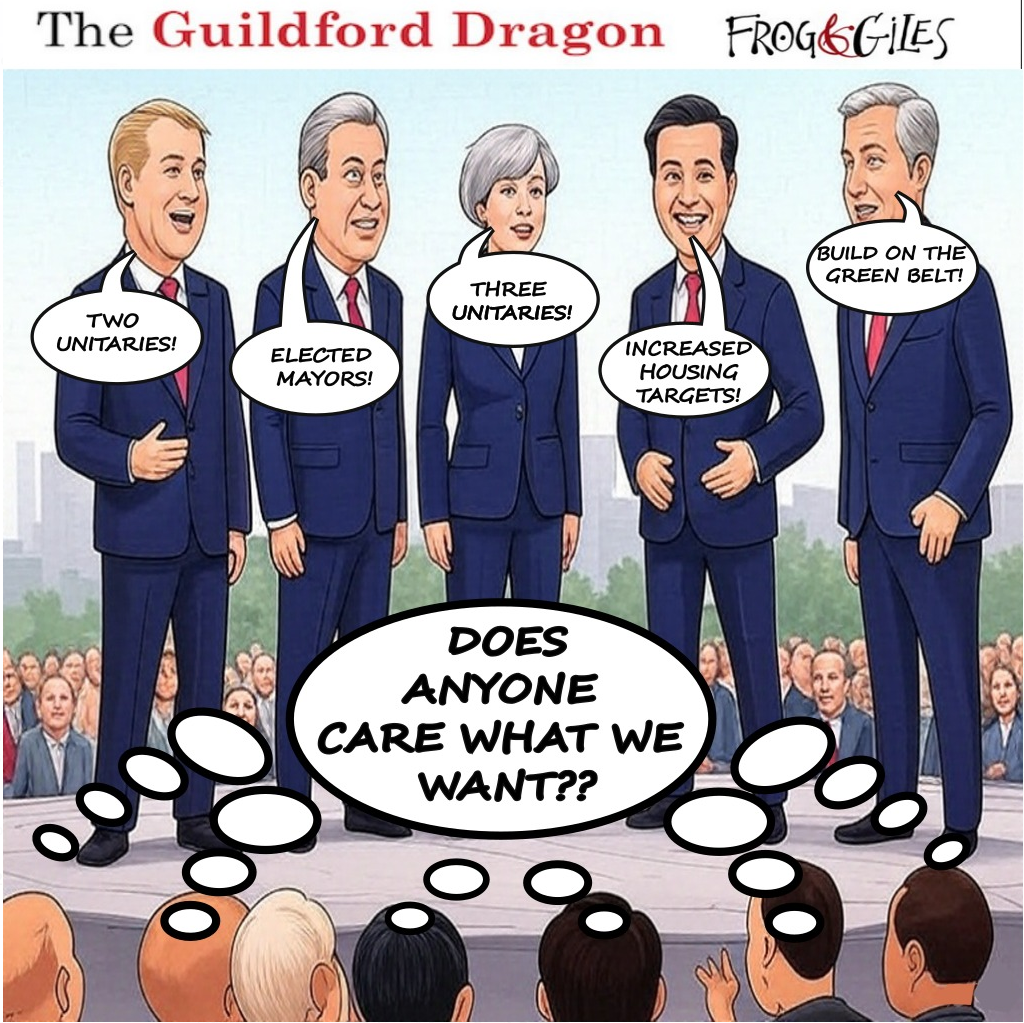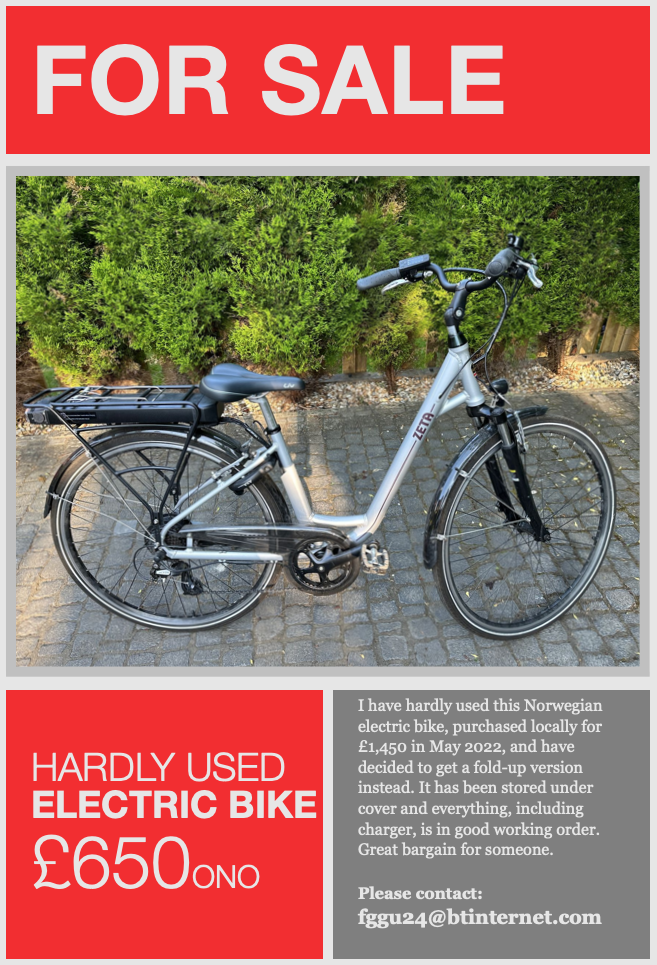 Abraham Lincoln
If given the truth, the people can be depended upon to meet any national crisis...
Abraham Lincoln
If given the truth, the people can be depended upon to meet any national crisis...
 Guildford news...
for Guildford people, brought to you by Guildford reporters - Guildford's own news service
Guildford news...
for Guildford people, brought to you by Guildford reporters - Guildford's own news service
Feature: Insights by Dr Alia Middleton, Expert in Voting Behaviour and Electoral Systems
Published on: 7 Dec, 2019
Updated on: 9 Dec, 2019
By Chloe Meley
This article, edited by The Guildford Dragon NEWS, is taken, with kind permission, from the University of Surrey’s student Incite magazine where it was first published.

Dr Alia Middleton
For Dr Alia Middleton, lecturer in politics at the University of Surrey, the run-up to a General Election is full of much more than an M&S picnic on results night and fending off a deluge of party leaflets. As a specialist in voting behaviour and electoral systems, she spoke to Incite Magazine to help shine light on this complicated General Election.
On a winter election:
Dr Middleton believes the weather is important. Not only could bad conditions prevent people from going to the polls, but it could also impede the counting itself by delayed arrival of ballot boxes.
People in rural and remote areas would be the most affected by heavy rain, flooding or even snow on election day, as would the disabled. Dr Middleton also pointed out: “Elderly people (who are more likely to vote Conservative) may be more reluctant to go to the polls.” To counter the adverse effects of bad weather, party workers may offer people lifts to their local polling stations.
 But Dr Middleton says we’re not really sure about the kind of impact bad weather can have on voter turnout. The last time the UK had a winter election was in 1974 and the last December election dates back to 1923, so there’s not enough data available to reliably predict what could happen at the polls this December. Turnout is in decline as a whole, so if voters stay at home on December 12, we won’t know exactly to which extent we can blame the weather.
But Dr Middleton says we’re not really sure about the kind of impact bad weather can have on voter turnout. The last time the UK had a winter election was in 1974 and the last December election dates back to 1923, so there’s not enough data available to reliably predict what could happen at the polls this December. Turnout is in decline as a whole, so if voters stay at home on December 12, we won’t know exactly to which extent we can blame the weather.
On tactical voting:
Tactical voting, as Dr Middleton explained, “is when you vote for a party other than the one you prefer to prevent another, less desirable party from winning locally”. Research shows this can change outcomes in certain constituencies. A few websites can advise you how to vote tactically but some websites sometimes “do rather dubious things with their data”, and are not reliable.
On first-past-the-post:
First-past-the-post is a “winner takes all” electoral system, in which the candidate who receives the most votes wins. Dr Middleton says first-past-the-post has shaped British politics for two reasons. First, this system means: “There are strong representational ties between the MP and their constituents. MPs are accountable to their constituents and when it comes to election time, constituents can express their discontent by failing to re-elect the MP.”
This focus on serving the constituency was notably used by certain MPs to justify their decision to reject a Brexit deal, first Theresa May’s and then Boris Johnson’s, arguing it was against the interest of their constituents. Second, first-past-the-post “enhances divisions in communities”. Why? “The simple majority required to win a seat often means thousands of local voters are being represented by an MP they did not vote for.”
On a potential coalition:
Dr Middleton believes a coalition is the most likely outcome of this election. “It will be difficult for any party to gain enough seats to be in overall control of the Commons, particularly considering the divisions we have seen within the parties over the past week.”
 Several MPs are stepping down or switching parties, fuelling uncertainty about who can emerge as a winner. Keeping in mind the issues that arose from the Conservative alliance with the DUP, Dr Middleton contends that “a more formal coalition between whatever parties come to the table may be a real prospect”.
Several MPs are stepping down or switching parties, fuelling uncertainty about who can emerge as a winner. Keeping in mind the issues that arose from the Conservative alliance with the DUP, Dr Middleton contends that “a more formal coalition between whatever parties come to the table may be a real prospect”.
On why you should vote:
Dr Middleton adds: “This is an incredibly exciting time for British politics, so I have a plea, please vote. Also, here’s a fun fact: if a constituency result is tied, it is up to the Returning Officer to decide how best to resolve this. That could be flipping a coin, making the candidates run a race or pulling their names out of a hat.”
Responses to Feature: Insights by Dr Alia Middleton, Expert in Voting Behaviour and Electoral Systems
Leave a Comment Cancel reply
Please see our comments policy. All comments are moderated and may take time to appear. Full names, or at least initial and surname, must be given.Recent Articles
- Guildford MP “Frustrated” with Transport Minister Over M25 Delays
- Letter: Compton Residents Are Angry and Upset Over Tree Felling
- County Council’s ‘Devolution’ Solution ‘Will Doom’ West Surrey To Fail
- Dragon Review: Handbagged – Yvonne Arnaud Theatre
- How VE Day Was Celebrated 80 Years Ago in Guildford
- Dragon Interview: Sir Jeremy Hunt MP on His Knighthood and Some Local Issues
- Guildford Has a New Mayor with Rock Star Quality
- Ash Street Co-op Still Suffering Fallout From Cyber Attack
- Guildford’s Job Centre Among 238 Hit By Data Breaches, Say Experts
- Surrey’s Boroughs and Districts To Submit Their Three-Unitary Council Plan


Recent Comments
- Rachel Buckett on Memories Of Queen Elizabeth Barracks And The Women’s Royal Army Corps
- Brian Creese on Guildford Has a New Mayor with Rock Star Quality
- Richard Sherlock on Guildford Has a New Mayor with Rock Star Quality
- Angela Gunning on Letters, Comments, Complaints Policy and Privacy Statement
- Peter Mills on Trans Protest on Guildford High Street
- Arthur Pint on Police Investigate Paint Attack at Guildford Business Park
Search in Site
Media Gallery
Dragon Interview: Local Artist Leaves Her Mark At One of England’s Most Historic Buildings
January 21, 2023 / No Comment / Read MoreDragon Interview: Lib Dem Planning Chair: ‘Current Policy Doesn’t Work for Local People’
January 19, 2023 / No Comment / Read MoreA3 Tunnel in Guildford ‘Necessary’ for New Homes, Says Guildford’s MP
January 10, 2023 / No Comment / Read More‘Madness’ for London Road Scheme to Go Ahead Against ‘Huge Opposition’, Says SCC Leader
January 6, 2023 / No Comment / Read MoreCouncillor’s Son Starts Campaign for More Consultation on North Street Plan
December 30, 2022 / No Comment / Read MoreCounty Council Climbs Down Over London Road Works – Further ‘Engagement’ Period Announced
December 14, 2022 / No Comment / Read MoreDragon Interview: GBC Reaction to the Government’s Expected Decision to Relax Housing Targets
December 7, 2022 / No Comment / Read MoreHow Can Our Town Centre Businesses Recover? Watch the Shop Front Debate
May 18, 2020 / No Comment / Read More










Johan Ingles - Le Nobel
December 9, 2019 at 5:16 pm
Postal votes are worth a mention in terms of mitigating weather effects. It’ll be interesting to see afterwards of more people chose to vote this way, perhaps because of the weather?